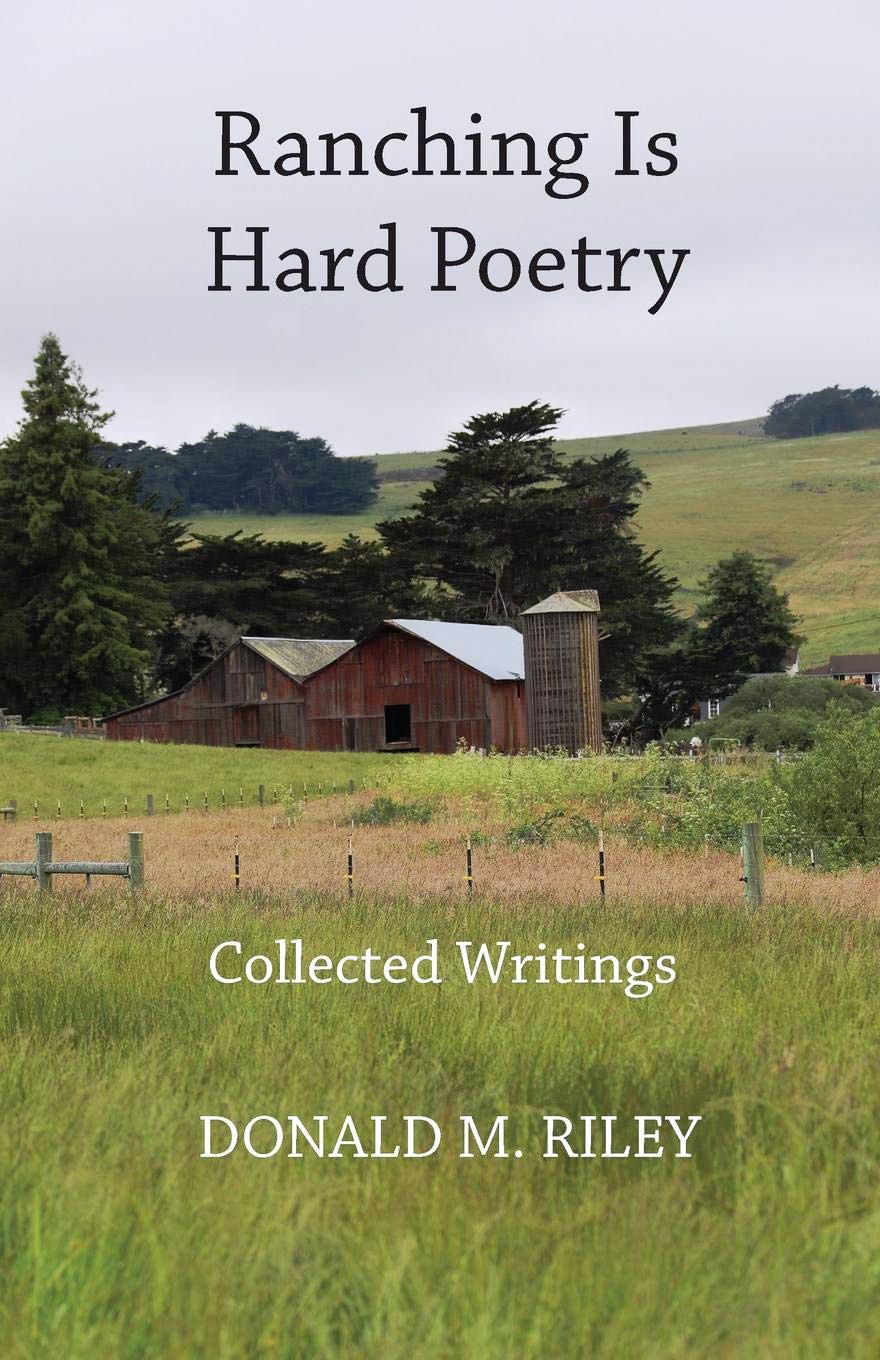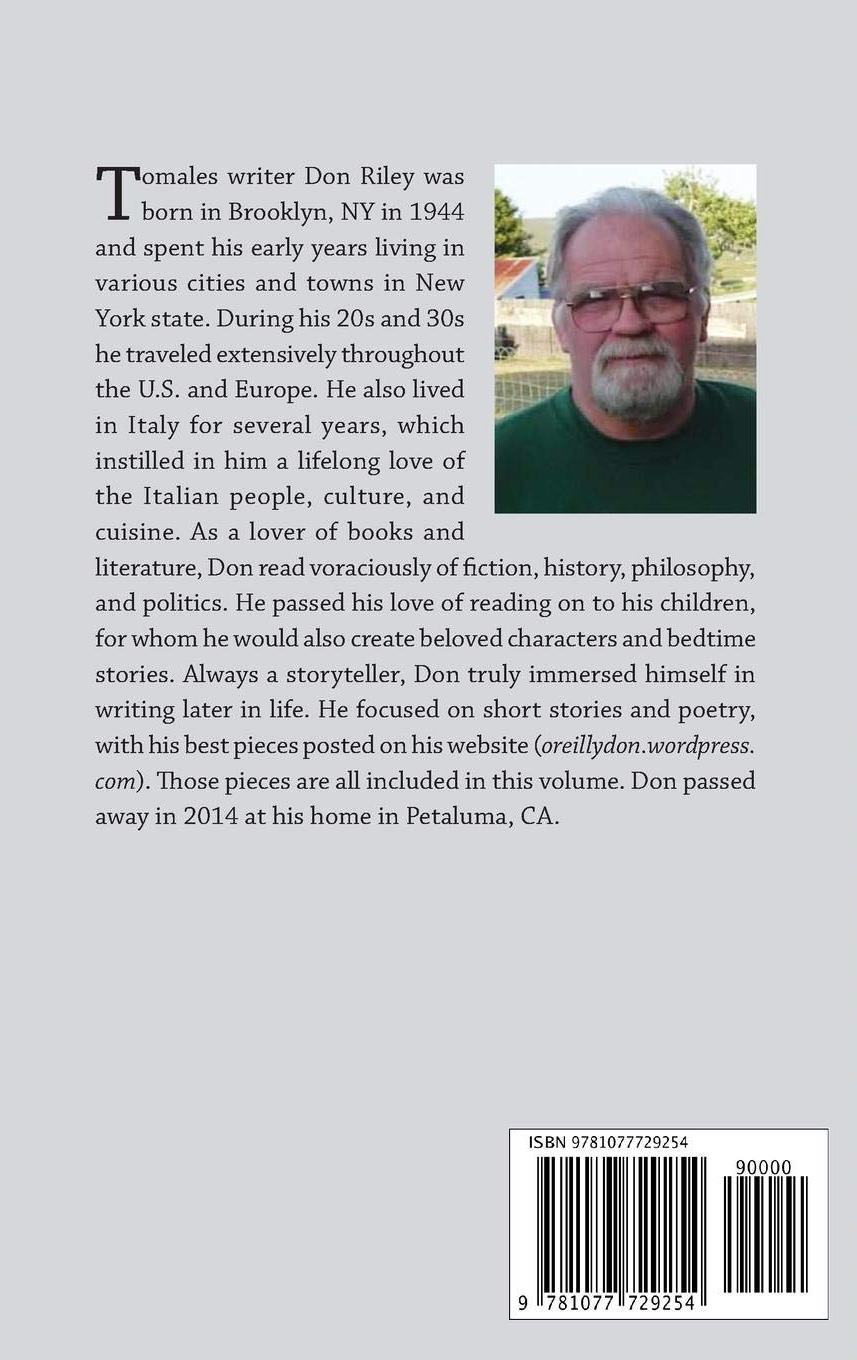| O Ce Biel |
| From the Friulan song "O Ce Biel Cjiscjel a Udin" |
| Memories of 1970s Friuli |
|
|
| HomeArrivalBrandoGowanTalmassonsTerremoto |
| ReturnFoodPoemsSongsVeniceTriesteUdineseMerlot |
Merlot |
This is a "guest" offering written by Don Riley. He and his wife Sarah preceded my arrival in Udine in 1975. They were close friends of Gowan (you'll recognise him and the Jag in the text) and Fran. Chris visited them later in California, as did Andrew. We only met briefly; there's a group picture in the "Brando" section. Don passed away in 2014 at his home in Petaluma. This evocative piece is published in his Collected Writings "Ranching Is Hard Poetry", available on Amazon. 

In the northeast corner of Italy, hard against the forests and mountains of Slovenia and Austria. Seven lovely soft country miles between Cividale and Prepotto, full of warmth and promise, vineyards, low hills, white crossroads votive chapels, little wayside osterias, little traffic and the old route of history's hard millenia of iron and blood, a road that takes you from beauty to beauty, through towns founded by Caesar, over blue diamond rivers, below steep wooded foothills, below the hawknest massive austerity of the monasteries on Castelmonte, sitting below far sharp vertical peaks, gray green black, heavily capped with white snow and ice, past green dense rich vineyards, around and about among dolmen hills and small valleys, in the sight of Celtic temple caverns, canyons of ancient bear caves, storied monasteries, secret arms caches, castles, silent stone villages often warred over, burned, blasted, rebuilt, country manors vast and small, smugglers' roosts and routes, and the trenches, the fortifications, and the formal or hastily dug and filled boneyards of many wars. So, despite this dark baggage, gloomy hindsight, déjà vu of foreboding, a model day, a day of spring perfected, warm comforting sun, small soft clouds, perhaps a breeze, no schedule at all, and a large fast Jaguar touring car, old, all leather and bright dark hardwoods, chrome and space, comfort and power, in a land of small cramped Fiats. The floor of the long narrow wooded and vined valley inclined away from the road and down a slight slope, ringed with hardwoods, a square stone farmhouse, tile roofed, and several cars. Our driver, a friend, a colleague, eccentric, impulsive, so it was in character, but still alarming, that he wordlessly aggressively wheeled the car down the gravel drive to the house. The house sat in a dell, a park of its own, mature trees tall and properly spaced around, allowing for attractive allotments of shade and light, coolness and warmth, a suggestion of some protection from the elements. They were all of the same age, the trees, a sign perhaps of an earlier devastation, cut for firewood in time of need or blasted apart in a spasm of conflict. The house itself, pristine, perhaps touched by war, perhaps repaired, was like other villas there, affected in design by the aesthetics of all those years under the Hapsburgs' weight, a little Austrian, a little Hungarian, a little lighter and less tightly sealed than a proper farmhouse of the area. I was new to the country, just beginning to accumulate the massive ignorance about it which I carry still. The custom of this particular day, unknown to me, had to do with the frasca, the branch. Seasonally, farms were permitted to sell food and drink of their own production at retail to the public, and to advertise that they were doing so by hanging a cut branch, la frasca, at the gateway to the farm. Most would augment their own production with other food, cooked, in order to transform a mere sale into a rustic meal, an afternoon, an outing. We had arrived at such a frasca, but I had no way of knowing, and entered the house with my friends in a state of high agitation, nervousness, trepidation, embarrassment. What ruin would our collective brutish behavior bring down upon us? Nerves attenuating, waiting for the rude refusal, the indignation of the others in the room we entered, I was wordless when we were met with and wrapped in cool courtesy, greeted and seated, efficiently dealt with; this was no restaurant, after all, but a farmstead, with a farmstead's choices; chicken, pork chops, a beefsteak, each and all with roast potatoes and fresh vegetables, this morning's bread from the town, wine, water. And we all chose chicken, somehow, and red wine. Merlot, we were asked, cabernet? The choices of the house, and we chose Merlot. With a bottle of water, the Merlot arrived at the table in an unmarked, unlabeled bottle, uncorked, set down, and left to us to pour. This is where this piece started, this bottle of Merlot. It has been in my mind since 1974, thirty-nine years, and like very very few things, few I say, placed on the dining table, it rests there in my thoughts as a high example of unmarred pleasure, an exemplar, a cut and polished ruby of the winemaker's strongest art, perfect juice of red grapes in a country of beautiful delicate unique unknown white wines, grapes grown in these small scarred little remarked bloodsoaked fought over valleys and on their hillsides, a wine made of grapes of unusual quality, fashioned to the winemaker's best taste, fashioned to his private pleasure and pride. Bottle untouched on the table, fruit drifted up and out of the neck, hinting of the wine to come. Poured and tasted, the wine was spherical, globular, and sat in the mouth like a cool alien body, a master fruit, liquid, of myriad potentials, goodnesses, initiating communication through interior senses, owning for a time the palate, itself. With all the other fruits attendant as attributes in our glasses that day, the primary, the motive agent, the transporter and carrier, was the merlot grape itself. It rolled over and under the tongue, a hint of this, of that, a brush of acid, a dark berry from high mountain glades and forests, an unlikely citrus, apple, or strawberry nudge, and always, always, the essence of the moment was this wonderful concentration of the pleasure and experience and essence of the grape itself. The wine was an athlete, in body strong and firm, mobile and agile, entering the mind as a reality, an ongoing oral experience, and as the palate reacted to fruit and acid, oils and shifting flavors, as one new sensation came upon and moved aside the previous, the memory of the previous remained in place, thereby building an increasingly complex and pleasureful multi-dimensional montage of and on, around, the palate. The wine grew in the mouth, became the moment itself, and created a strong desire for stasis, the unchanging state of strengthening pleasure. The Merlot finished with a linger, tiny nods at all the pleasure gone by, and winks to tell that the same pleasures and more merely awaited the exercise of your will to raise the glass again. We drank bottles of this wine, this dark red liquid succour; more than we should have, certainly, less than we could have, incautiously. We followed this meal and this wine, probably, with coffee, gubana, grappa. And we carried some of that beautiful unnamed Merlot away with us, for another time. We were all strangers and foreigners at that table in that broad low room in the farmstead, the frasca. We attracted some attention by our speech, our clothing, perhaps our mild unusual boisterousness. We differed from all the others there as well, in our ignorance of the world about us. We met, though we knew not, in the course of the day, drank with, spoke to, saluted, were served by, broke bread with, saw or were seen by, Anarchists and Monarchists, Communists, Conservatives, Black Shirt Fascists, and operatives of the Red Brigades. We had no sense of the shifts in power, the waning of the church, the burgeoning of Slav nationalism, the activating caste and background, inflection, vocabulary that indicated commune and village, first or second language, nationality of origin. We didn't know, realize, that all about us the Slav minority was being hounded and persecuted by Italian nationalists, or that NATO and the CIA were training and arming a covert guerrilla force to lie quiet until called to combat a Communist invasion, or even a duly elected Communist government, weapons and explosives hidden in the mountains and plains, in churches, caves, and homes all throughout the countryside. We couldn't know, certainly, that the tectonic plate on which we rode, the ancient northern tip of the African continent, was straining against all the earth around it, and that in two years' time with a snap it would slip, villages would level, churches collapse, theaters and bars and homes scream themselves quiet, and that a thousand people would die in a minute, nor that we would be drawn for a moment to the hills and mountains to help a bit as the torn and battered people drew themselves out of the deeps of despair, rebuilding and restoring what had been, only better, as they could. |